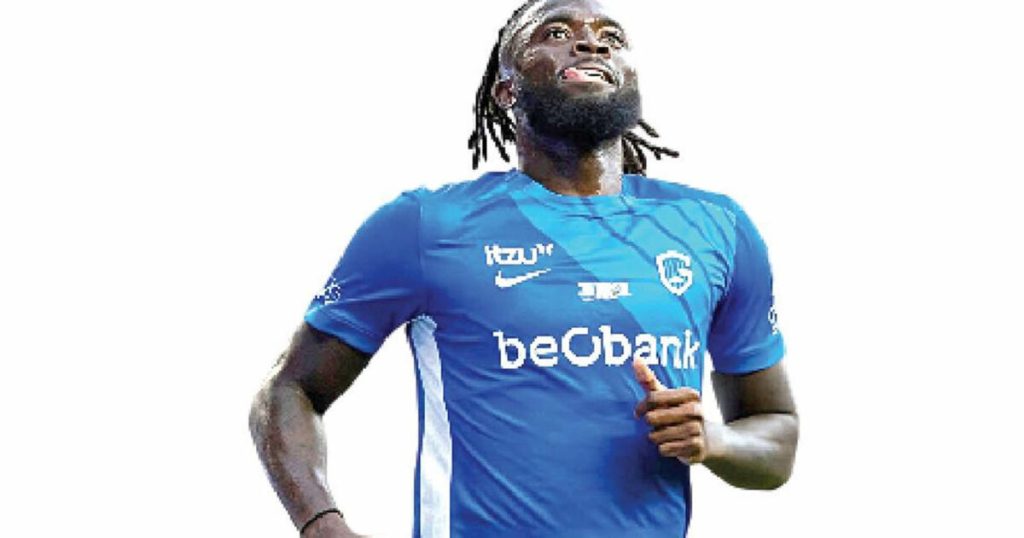Tolu Arokodare, the reigning Belgian Pro League Golden Boot winner, finds himself in a peculiar predicament at KRC Genk. Despite a stellar previous season where he netted 21 league goals, the Nigerian forward has been relegated to a bench role, only seeing a meager 40 minutes of action across two games this season. This situation has sparked debate and confusion among fans and pundits, with many questioning the rationale behind sidelining the club’s top scorer. Former Genk goalkeeper and current football analyst, Jacky Mathijssen, has weighed in on the matter, offering insights into the potential factors driving Arokodare’s diminished playing time.
Mathijssen suggests that Arokodare’s benching is a consequence of behind-the-scenes agreements and the club’s anticipation of a summer transfer. He believes Genk initially favored Arokodare as their primary striker but subsequently made promises to both Arokodare and South Korean forward, Hyeon-gyu Oh. These purported promises involve a potential transfer for Arokodare and the starting striker position for Oh. This leaves manager Thorsten Fink in a difficult position, torn between honoring these agreements and fielding the strongest possible team. Mathijssen argues that as long as Arokodare remains a Genk player, he deserves to start based on his proven goal-scoring prowess, regardless of any pre-arranged transfer plans.
Arokodare’s impressive performance last season has attracted interest from several European clubs, further complicating his situation at Genk. Clubs like Atalanta, Fulham, Newcastle, Borussia Dortmund, and VfB Stuttgart have all been linked with the Nigerian forward, suggesting an imminent move away from Belgium. While a transfer might seem beneficial for Arokodare, ensuring more playing time and potentially a higher salary, his current predicament raises concerns about player management and the influence of transfer dealings on team selection.
The situation at Genk highlights the complex dynamics that often play out behind the scenes in professional football. While fans primarily focus on on-field performances, decisions regarding player selection are often influenced by a multitude of factors, including contractual obligations, transfer negotiations, and internal agreements. This can lead to seemingly illogical decisions, like benching a proven goalscorer, creating friction between the club, the player, and the fans. Mathijssen’s analysis sheds light on this intricate web of factors and underscores the challenges faced by managers who must balance sporting objectives with the realities of the transfer market.
Arokodare’s case raises questions about the ethical considerations of prioritizing transfer agreements over sporting merit. Should a player’s potential transfer influence his playing time, even if it means weakening the team in the short term? While clubs operate as businesses and must consider their financial interests, benching a key player solely for transfer-related reasons can be perceived as unfair to both the player and the fans. It also raises questions about the integrity of the competition, as team selections may be influenced by factors external to the game itself.
The unfolding situation at Genk will undoubtedly continue to be a topic of discussion among football enthusiasts. Whether Arokodare stays or leaves, his case serves as a valuable illustration of the complexities of modern football management. It highlights the delicate balance between sporting ambition, player development, and the ever-present influence of the transfer market, reminding us that the game is not always solely about what happens on the pitch. Ultimately, the outcome of this situation will have significant implications for all parties involved, shaping Arokodare’s career trajectory, Genk’s performance this season, and the perception of the club’s management decisions.


